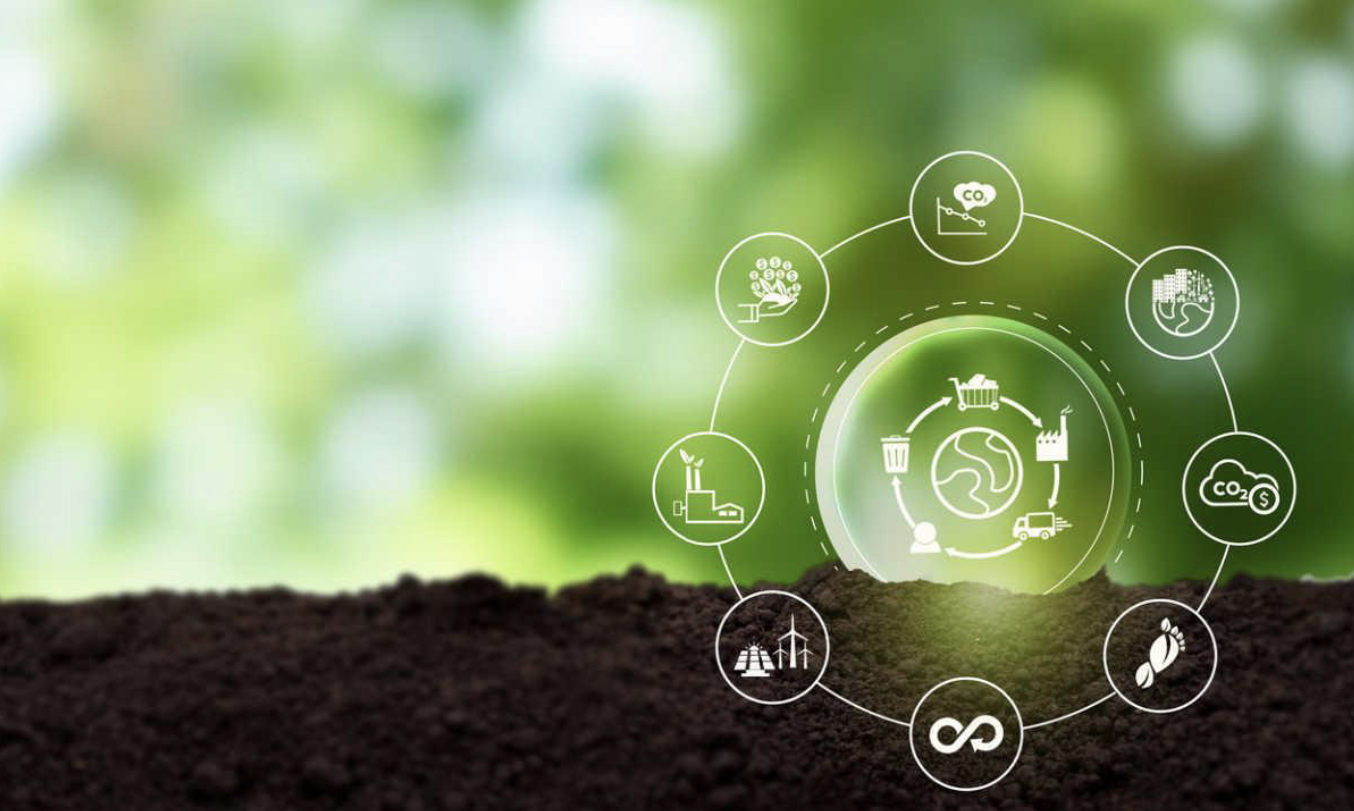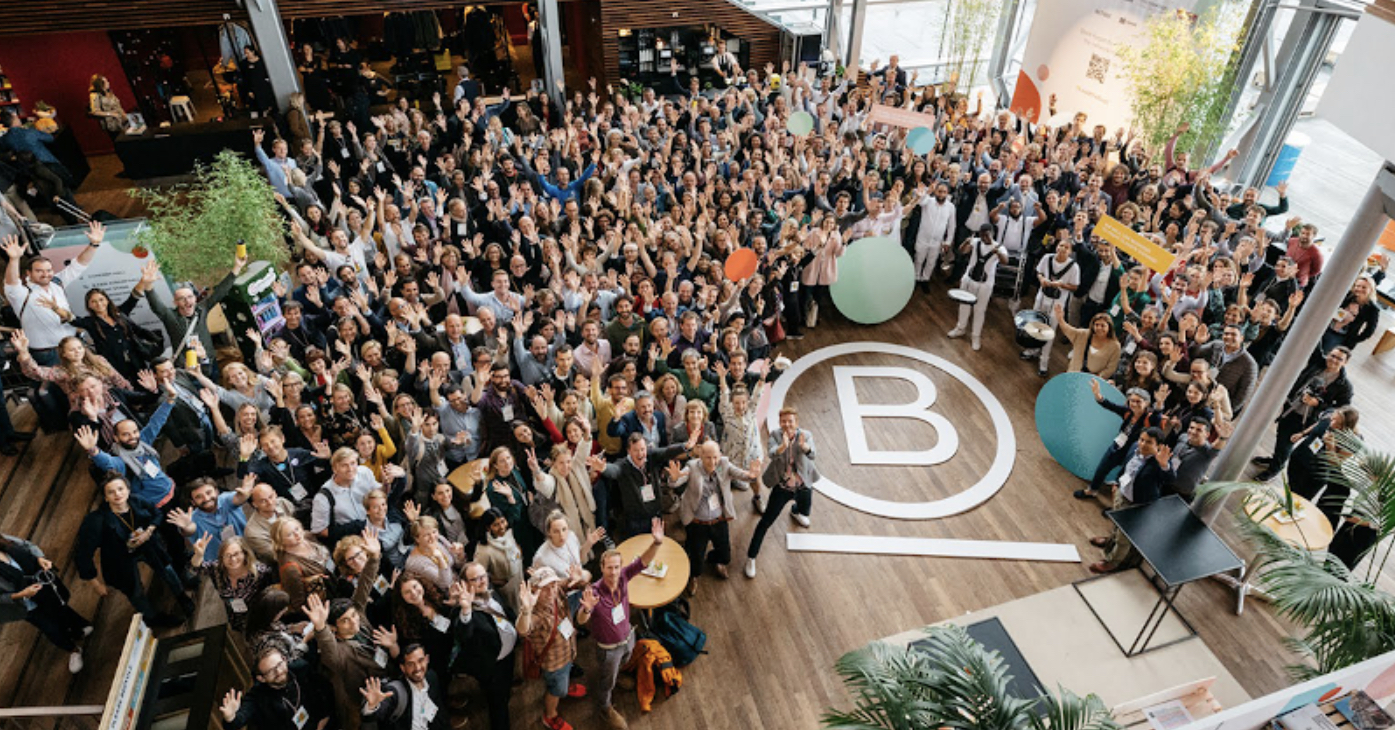
blogs
For an inhabitable Earth: Striving for continuous sustainable improvement with Neila Benamara
Imagine yourself, in the morning before heading off to work, scrolling through your regular news homepage and coming across an article under the section ‘Sustainability’.
Oftentimes, you are met with not-so-positive updates. Let’s think about, for example, how we are close to burning off our ‘carbon budget’ – the limit to keep the Earth’s temperature within 1.5 degrees Celsius increase; or how the Arctic Ocean is likely to become ice-free closer to the 2030s, with a warming rate doubling that in other parts of the world; or Europe’s bird population has decreased by nearly 500,000 in the past 4 decades.

Confronted with such bleak scenarios of the future, a reluctance seems to exist to start making changes and creating positive impacts. Questions such as “If the Earth is already moving toward an uninhabitable future, what even is the point for us to keep trying?” are raised, and pessimism gradually deters people to intensify or even kickstart their sustainability efforts.
“… what even is the point for us to keep trying?”
Despite that, it has slowly become a common practice for companies worldwide to pay more attention to sustainability in their operations. It is not rare to come across such declarations and reports on their websites, stating the goals and activities tailored to improve and lessen their environmental or societal impacts.
In fact, in some countries, it has become their legal obligation to do so . In the local context of Europe, Supply Chain Due diligence and the societal responsibility of directors are brewing for an imminent directive release.
From an Edelman 2021 study, 86% of people expect CEOs to lead on societal issues, though some people are critical of this change. The questions remain on whether companies’ actions are still at the minimum, in favor of the ‘sustainability trend’, and barely scratching the surface of the problems; or whether they are making serious efforts to blend sustainability into the core of their business. But one thing is sure, there is a culture change happening, businesses are becoming accountable for their impact on people and the planet.
To seek answers to such questions, as part of our Fireside Chat series in the Global PRO Final Week, our second day dives into a journey of bringing positive impact at scale via supply chains and collective actions through a thought-provoking and insightful discussion with Neila.

Neila is currently working as the Head of programs at B Lab Europe, a nonprofit organization that plays a vital role in promoting and supporting the global movement of businesses using their power to create positive social and environmental impacts. Through the B Corp certification process, it fosters a global movement of companies using business as a force for good. It has become a growing community, striving to encourage collective and impactful changes.
A Passion for Supply Chain Management and Sustainability
Neila’s journey to sustainability did not start directly with a degree in the subject, but through an interest in Supply Chain Management.
“Supply Chain is such a representative of how we live in the world today because we are all interconnected.”
She shares: “Supply Chain is such a representative of how we live in the world today because we are all interconnected. I love conceptualizing how we are all nodes in a certain way and working together but having also different roles and different interests. To understand what the processes are and ways that we can all work together.”
However, her passion for supply chains expanded beyond mere logistical considerations. Neila revealed that her studies unveiled the lack of long-term thinking in Supply Chain Management – focusing on aspects such as costs and standard KPIs, while often overlooking topics, especially related to sustainability, such as supplier relationships or natural resources availability. The elements also play a key role in maintaining a well-operated Supply Chain for a business.

“I think it’s about integrating Sustainability in the decision-making process as much as the financial considerations and then making an informed and conscious decision based on that. So not too extreme, but to ensure that we have all the necessary information.
“Especially when talking about Supply Chains, managing trade-offs is part of the daily tasks, so it’s about making sure all of them are listed for true benefits.”
Applying lessons learned: Continuous improvement
One of her main takeaways after years of studying and working in Supply Chain and Sustainability is Neila’s appreciation for continuous improvement. Perhaps stemming from her cultural background and upbringing, she was used to aiming for ambitious and demanding goals right away.
However, her career has taught her to always celebrate the small wins along the journey of transformation. That is a much longer-term process, which itself is as rewarding as the end goal initially set, especially when considering how the mindset and skills are evolving as part of it.
Even things that seem impossible can be broken down into small steps that we can realistically achieve. When we question ourselves to remove the unconscious beliefs and biases, we may navigate the way to avoid any obstacles that hinder us from reaching our end goals.
Neila’s advice is well aligned with our dilemma above when it comes to supporting sustainable development.
“But it is a long journey, and all the steps are important to improve.”
Rather than expecting a perfect result immediately – a drastic decrease in carbon emission or an immediate restoration of biodiversity – which is impossible overnight, she shares that: “Companies are taking measurements, and it might not be enough. But it is a long journey, and all the steps are important to improve.”
This also resonates with both individuals and businesses. The quest for meaningful impacts needs to acknowledge that transformative change, especially to slow down or rewind decades of negative impacts, is often built step by step.
This shouldn’t stop companies from innovating and consider disruptive models that would be more sustainable, or even better regenerative. But as part of this process, to build a transformational journey that takes into account the impact on people and necessary adaption for transition.
Organizational Challenges and Solutions in Sustainability
Companies, when it comes to sustainability transformation, are faced with numerous challenges. For small and medium enterprises, Neila explains that it is usually due to a lack of financial resources.
For larger corporations, the challenge lies in the fact that our markets are still quite unregulated , and the competition too fierce to allow space for such changes.
Strong regulations can prompt better results in sustainable activities by creating a norm for companies to not only adhere to, but to compete in the markets on more virtuous grounds for the planet and people.

To overcome such barriers, there are multiple attempts made by nonprofit organizations, businesses, and governmental institutions.
“There is a growing momentum on all parts that creates a fertile ground to change the rules of the game to use business as a force for good.” – Neila stresses. “Today, there are more and more investors that are also ‘impact investors‘ – taking impact criteria into their selection for the portfolio and also public institutions are looking at it.
“The European Commission is looking at due diligence and CSRD regulations to also force everyone to report. It is not one (company) reporting, and one is hiding (their sustainability impact).”
Another prime example is the growing interest for the B Corp certification, delivered and managed by B lab. There are currently more than 7300 certified B Corps in 2023 worldwide.
This is a certification for businesses that meet high standards of verified performance, accountability, and transparency on factors from employee benefits and charitable giving to supply chain practices and input materials and many more!
This represents a holistic set of standards and unique frameworks to measure and improve businesses’ societal impact.
“B Corp is more than a certification; it means being part of a community working towards a shared goal.” – members of the B Corp Community.
These companies are together striving to achieve their sustainable goals, their individual efforts can now be amplified and become a collective force for more prominent positive changes.
Neila shares stories about Patagonia and its campaign to encourage consumers to not buy from them, but instead opt for repairing and reusing to reduce the use of natural resources.
She also mentions the example of Tony’s Chocolonely that is putting its mission first of abolishing child slavery in the cocoa industry, working with its competitors with a supply chain open-source concept and using its profits at the service of their societal mission.
“We have in the B Corp community, people who are bold enough and innovative to take action against the flow and the norm. The power of the collective should not be underestimated as it can drastically change entire industries when principles of cooperation for a common beneficial mission are applied.” This can in turn stimulate other businesses to start making their own innovative changes.
Join the Conversation
Our brief conversation with Neila brings to the forefront the vital role of individuals, businesses, and organizations in shaping a more sustainable future.
Curious for deeper insights into sustainable supply chains? Register now to join the Fireside Chat with Neila on November 14th: On a journey to bring positive impact at scale via supply chains and collective actions.
References:
- https://www.theguardian.com/environment/2023/jun/08/global-greenhouse-gas-emissions-at-all-time-high-study-finds
- The Arctic Ocean is warming twice as fast as other parts of the planet and could be ice-free in summer by the 2030s, creating dangerous consequences for the planet, a new study shows.
- Europe’s bird population has declined by half a billion over the past 40 years, with pesticides and fertilizers listed as a leading cause of this decline, data on biodiversity shows.
